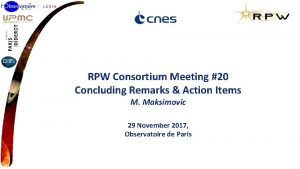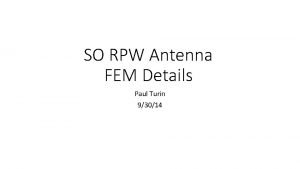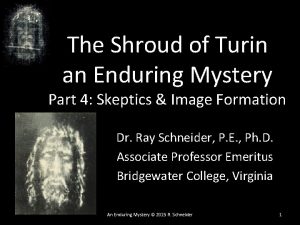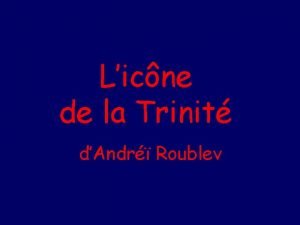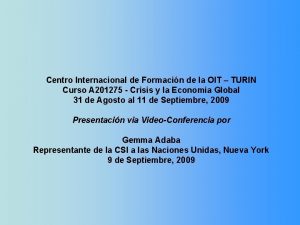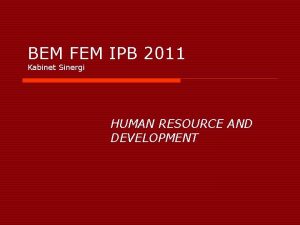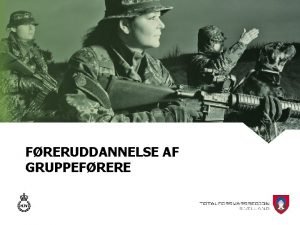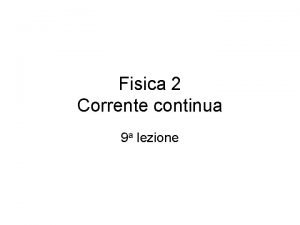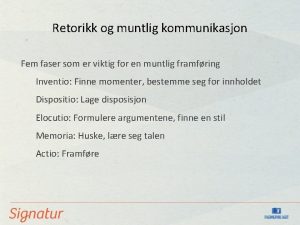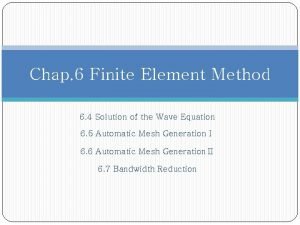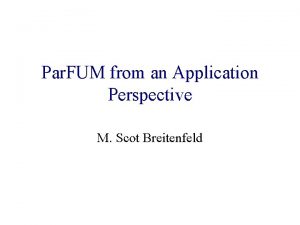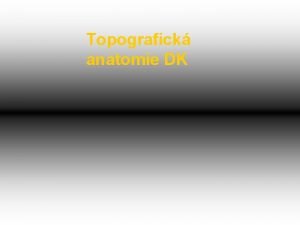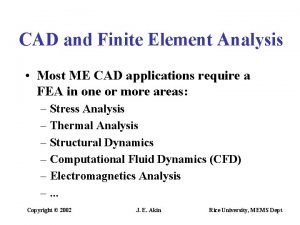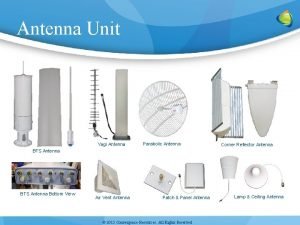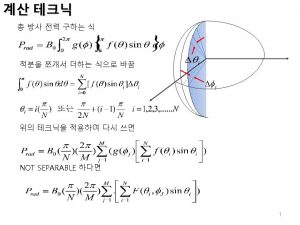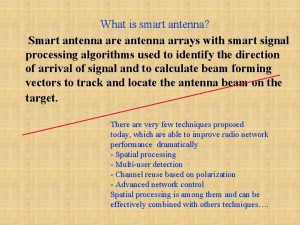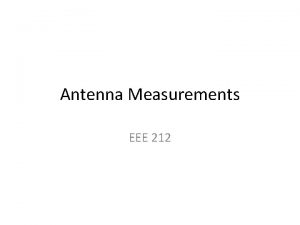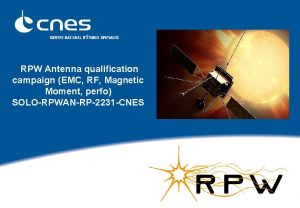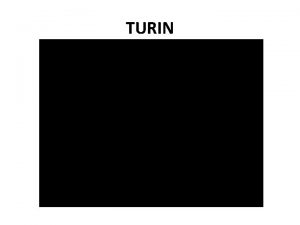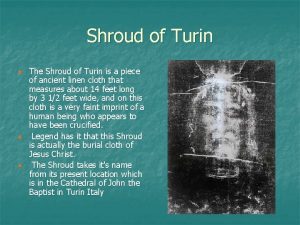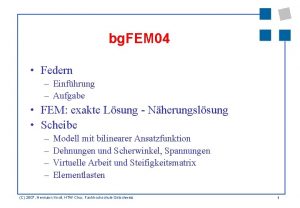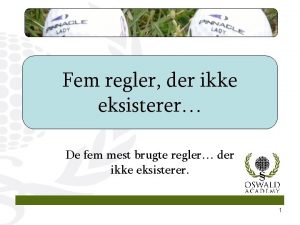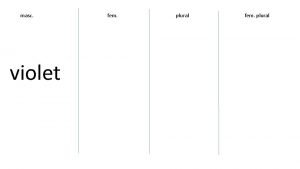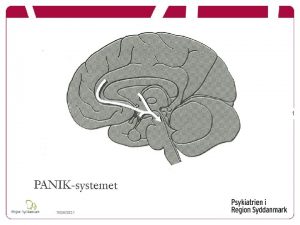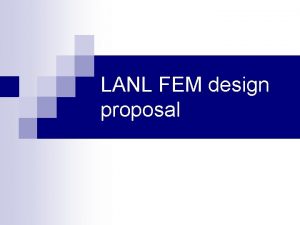SO RPW Antenna FEM Details Paul Turin 93014


















- Slides: 18

SO RPW Antenna FEM Details Paul Turin 9/30/14

Materials

Materials Cleat 6061 -T 6 Al Stacer Frame 6061 -T 6 Al Stacer Insulator Peek 450 G (2) Stacer Adapter Ti 6 Al-4 V Cage Base Ti 6 Al-4 V Cage Dog 303 SS (2) Hinge socket 6 Al-4 V Ti Cage adaptor 6061 -T 6 Hinge Flexure Ti 6 Al-4 V PZ Adapter 6061 -T 6 Al Hinge Yoke 6061 -T 6 Al Hinge Base 6061 -T 6 Al (2)

Shells – Stacer Canister Stacer canister is a. 040” thick 6061 -T 6 tube

Shells - Boom Tube Boom tube modeled as a shell with isotropic properties. Currently 2. 500”OD X. 035” thick to achieve 150 Hz 1 st mode using the properties developed for THEMIS From THEMIS: Designed Lay-up [(0/90)T 300 / ((0)M 60 J)7 ]s T 300 = high-strength carbon fiber/epoxy woven (0. 005”/ply), M 55 J = high-modulus carbon fiber/epoxy tape (0. 002”/ply) Tube Design Thickness = 0. 035 in. Outside diameter = 1. 250 in. Effective Modulus = 33 x 106 psi (230 GPa) Mass per unit length = 43 g/in (1. 68 g/cm)

Remote Masses Solid. Works Simulation accounts for the mass properties of non-modeled components using “Remote Masses”. The following slides depict all of the required remote masses for the nonstructural components of the antenna assembly. Masses are divided up between attachment points to avoid stiffening the structure. For all of the following the origin is 1. 4765” below (along Y) the center of the bolt pattern on the bottom of the Hinge Base (as shown at right). The STEP model should be in this coordinate system. Note the magenta spheres denote the CG as given in the tables. Table dimensions are from the origin. Hinge base

Hinge Mechanism

Preamp Load shown is also applied to each of the mounting points shown with red arrows

Stacer Front

Stacer Rear

Main Heat Shield Load shown is also applied to each of the mounting points shown with red arrows

DAD Heat Shield

Tube Heat Shield Rear

Tube Heat Shield Rear

Connectors Solid. Works uses “Connectors” to model bearings, pins, bolts etc. The following slides depict all of the required connectors that control the interaction of the parts. Any touching faces are globally bonded. The shell elements od the CF tube and Stacer canister are bonded

Hinge Bearings ball bearings – modeled as selfaligning with 3 rotational degrees of freedom

Caging Mechanism Latch Dog Pins Latch Dogs (one each side) Swivel on pins Pins same on the other side Single rotational degree of freedom SS pins Caging mechanism base

Caging Mechanism Latch Dogs Spherical interfaces modeled as self-aligning ball bearings with 3 rotational degrees of freedom
 Opening remarks rpw
Opening remarks rpw Paul turin
Paul turin Minor detail example
Minor detail example Major support and minor support
Major support and minor support Ilo international training centre
Ilo international training centre Ray downing face of jesus
Ray downing face of jesus International training centre ilo
International training centre ilo Regard divin
Regard divin Adela turin biografia
Adela turin biografia Oit turin
Oit turin Sintaktička služba
Sintaktička služba Bem fem ipb
Bem fem ipb 5 punktsbefaling
5 punktsbefaling Fem in fisica
Fem in fisica Retorikkens fem faser
Retorikkens fem faser Fem shape function
Fem shape function Fem fum
Fem fum Nll anatomie
Nll anatomie Fem applications
Fem applications
